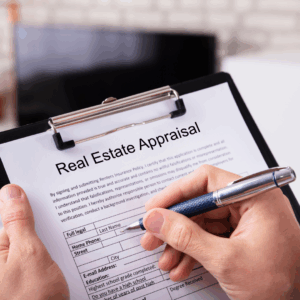
By Tyler Plack
Tyler Plack is the President of South River Mortgage. Tyler holds an active FHA Direct Endorsement (DE) underwriting certification and is the author of The Retirement Solution: Maximizing Your BenefitTyler is a seasoned entrepreneur and real estate investor renowned for his expertise in reverse mortgages and his commitment to addressing seniors' equity challenges. Tyler brings a unique perspective to his ventures, having built several successful companies throughout his career. His insights are frequently sought by industry publications, where he is recognized for his vast knowledge in the realm of reverse mortgages.
An avid investor in income-producing properties, Tyler is dedicated to helping seniors navigate their financial needs with compassion and expertise. When Tyler is not helping solve America's retirement crisis, he is a skilled pilot flying airplanes for fun.
When you apply for a reverse mortgage, one of the biggest factors in how much money you can access isn’t your credit score or your income—it’s your home appraisal.
The appraisal determines your home’s current market value, and that value directly impacts how much equity you can borrow against. In other words: if you’re looking to unlock the most from your reverse mortgage, appraisals matter in reverse mortgages.
Let’s look at why appraisals matter, what the process involves, and how you can put your best foot forward.
Why the Appraisal Matters
A reverse mortgage loan amount is based on a few things: your age, current interest rates, and—most importantly—your home’s appraised value.
- A higher appraised value means you may qualify for more funds.
- A lower appraised value means less equity available to you.
That’s why two neighbors with similar homes could walk away with very different reverse mortgage proceeds: it all comes down to what the appraiser sees and records.
Appraisal Cost and Timeline
Many homeowners are surprised to learn that the appraisal is not just a formality — and it isn’t free. The typical cost for a reverse mortgage appraisal can range from $500 to $700, depending on your location and property size. This fee is usually paid upfront, but it’s credited back to you at closing if you proceed with the loan.
Timing-wise, the appraisal happens early in the reverse mortgage process — usually right after your application is submitted. Once the appraiser visits your home, you can expect results within a few days to a week. This value then becomes the basis for calculating how much you can borrow.
What an Appraiser Looks For
Appraisers don’t just glance at your house and guess. They follow set guidelines to determine value, including:
- Condition of the home – Well-maintained homes tend to appraise higher.
- Comparable sales – What similar homes in your area have sold for recently.
- Upgrades and updates – Renovations or modern features can boost value.
- Neighborhood factors – Local market trends, schools, and nearby amenities.
It’s not really about cosmetic perfection—more about the overall condition and marketability of your home.
Are You Eligible for a Reverse Mortgage?
(Find out in 60 seconds)
How to Prepare for a Reverse Mortgage Appraisal
You don’t need to stage your home like it’s going on the market, but a little prep can make a difference. Here are some smart steps:
- Tidy up inside and out – First impressions matter. Clear clutter, mow the lawn, and handle basic maintenance.
- Fix minor repairs – Things like leaky faucets, broken door handles, or peeling paint can add up in the appraiser’s eyes.
- Highlight upgrades – If you’ve recently replaced the roof, updated the kitchen, or added energy-efficient features, have receipts or documentation ready.
- Be available to answer questions – Appraisers may ask about recent improvements or property details.
Think of it less like impressing a buyer and more like presenting your home in the best, most accurate light.
What If My Home Appraises for Less Than I Want?
Sometimes an appraisal comes back lower than expected, which can feel disappointing. A lower value simply means you’ll qualify for a smaller loan amount — but you still have options.
You can move forward with the lower proceeds if it still meets your needs, cancel the application with no penalty, or wait and reapply in the future if you think market conditions will improve. In some cases, HUD may require a second appraisal if the first value is unusually high or low compared to the area — this protects both you and the lender.
If you disagree with the value, you may be able to provide additional comparable sales or documentation of improvements for reconsideration.
The Bottom Line
In a reverse mortgage, the appraisal isn’t just paperwork—it’s a critical step that can affect how much equity you get access to. By understanding the process and preparing ahead of time, you give yourself the best chance at a favorable outcome.
At South River Mortgage, we guide you through every step of the process, including the appraisal. Our goal is to help you maximize your home’s value so you can unlock the retirement funding you deserve.
Curious how much your home might qualify for today?
Click here to get your instant reverse mortgage quote »
FAQs
Who pays for the reverse mortgage appraisal?
The homeowner typically pays for the appraisal upfront, but the cost is usually credited back at closing if you complete the loan.
Do I need to remodel before the appraisal?
No. Major renovations aren’t necessary. Focus on basic maintenance, cleanliness, and documenting any recent improvements rather than investing in big remodels.
What happens if my home needs repairs?
Some repairs — such as health or safety issues — may need to be fixed before closing. Your lender will let you know if this applies to your home and may allow funds from the reverse mortgage to be set aside for the work.
Can I request a reappraisal?
Yes, but only in certain circumstances. If you can provide new comparable sales or evidence that something significant was overlooked, your lender may request a value reconsideration.
Does the appraisal affect my future equity?
The appraisal only determines your starting loan limit — it does not lock in the future value of your home. Your equity will still change over time based on home price appreciation and how much you borrow.




